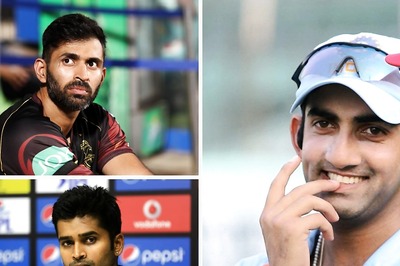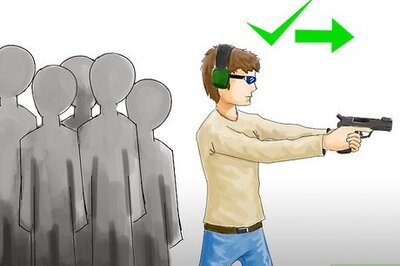
views
It was the brainchild of the present Chief Minister J Jayalalithaa.
Set up in 1992, the family counselling centres at three nodal all-women police stations (AWPSs) in Chennai and the Office of the Commissioner of Police in Egmore today render invaluable assistance to cops in resolving vexatious cases of domestic violence.
It will not be an exaggeration to say that the women counsellors attached to these centres are constantly engaged in pulling back several desperate lives from the brink and keeping families together. No wonder that with hundreds of complaints of domestic disputes flooding the police stations, the CM hit upon the idea of following the Brazilian model of creating the AWPS to deal with women’s woes. But when it soon became apparent that the cops were professionally ill-qualified to deal with domestic disputes, she took the next logical step.
“The CM directed the Tamil Nadu Social Welfare Board to recruit professional counsellors to deal with the complaints,” recalled J Arul Thangam (42), a counsellor at the Police Commissioner’s office. With a Masters in Social Work, she was one of the six women recruited by the board from the NGOs/employment exchange.
Under the leadership of Vanaja Clement (58), the group is today a permanent fixture at the Police Commissioner’s office and the AWPSs in Thousand Lights, Flower Bazaar and Adyar. It has been a long journey for the counsellors since then. At the centres, aggrieved women, some displaying suicidal tendencies, await their arrival everyday. Said S Usha (34), an accounts officer, who is estranged from her husband and lives separately with her two children at Kodambakkam: “I came for counselling in 2010 when I had problems with my husband on money matters. He also used to beat me often.”
Usha finally opted to settle the matter in court, but she was back at the counselling centre on Friday, saying she wanted reconciliation. Like Usha, there are several women who approach Arul Thangam with different problems. “We do qualitative analysis of cases involving dowry demand, maladjustments with spouse and in-laws, problems by spouse and in-laws and maladjustment between parents and children,” said Arul Thangam.
Of course, maladjustment with the spouse, with factors ranging from property dispute, extra-marital affair, alcoholism, harassment, paranoid tendency, bigamy, sexual abuse and problems, mental illness and child custody, dominates the rest. “We listen, observe and question over several sessions before we counsel them on the possible course of action,” she said.
The assistance ranges from referring the aggrieved women for legal aid, family court, protection officer, police, psychiatric help, short stay with others, de-addiction and sex therapists. This year, the counselling centre at the Police Commissioner’s office alone received 221 complaints, the highest being 38 in February.
Unlike the AWPSs, which have acquired a notorious reputation for indulging in katta panchayats, solutions are not forced upon warring couples at the counselling centres. “We moderate, help them to get in touch with reality and that helps them to make up their mind,” Arul Thangam said.
She is full of praise for two former police commissioners —R Nataraj and T Rajendran. “They understood the importance of our work and supported us,” she said.
But the counsellors have their grievances too. While it was a smooth sail under the Tamil Nadu Social Welfare Board for a decade, the centres hit a roadblock in 2004. In a review, the Union Ministry of Women and Child Welfare directed the State to handover the counsellors to a leading NGO, citing its project policy.
While the counsellors draw a salary of `10,500 per month, the flow of Central funds to their NGO has not been smooth. No wonder, today there is no counsellor at the AWPS in Adyar as the incumbent reportedly quit citing the paltry salary.
Hence, topping their demands is a hike on a par with the protection officers attached to the Collectorate, who draw `15,000 a month, apart from job permanency. As the MSW students assisting the counsellors manually fill in the registers, it is clear that computers are yet to make their entry at these centres — a pity, as the counsellors have to follow up the cases for at least a year or even for a lengthier period of time.
















Comments
0 comment